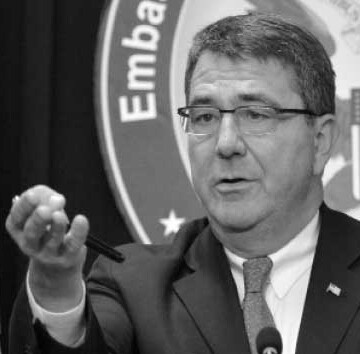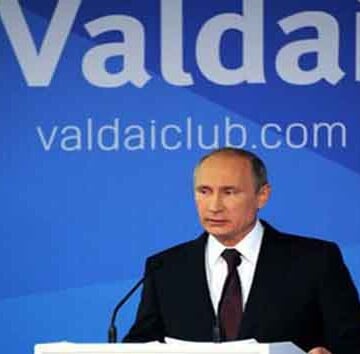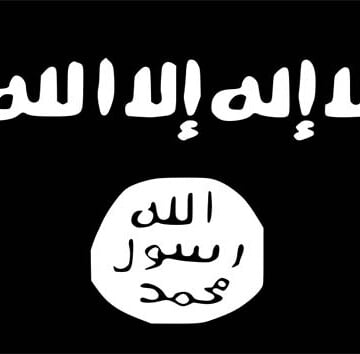It is idle to pretend: Hillary R. Clinton will be the next president. A nation capable of electing, and then re-electing, Barack Hussein Obama is perfectly ready to make the most influential woman in the world the most powerful person on this planet. The math is on her side (and let us not imagine that...
Author: Srdja Trifkovic (Srdja Trifkovic)
The Ghosts of Sigmaringen
On a recent trip to Germany I took a day off to visit Sigmaringen, on the upper Danube some 20 miles north of Lake Constance. This town of ten thousand with a massive castle towering over it – or, more precisely, this castle with a town attached – interested me as the site of a...
Neoconservatism – Where Trotsky Meets Stalin and Hitler
Eleven years ago I wrote a column for the print edition of Chronicles under this title. Tom Piatak’s grim reminder of the continued destructive presence of this cabal in what passes for the commentariat in today’s America has prompted me to dig into my old files and recap for our readers the historical and ideological...
A Towering Genius, Greatly Missed
On April 1, 1815, Otto Eduard Leo pold von Bismarck was born on the family estate at Schönhausen near Berlin, in what used to be Prussia. He came into this world at the end of a quarter-century of pan-European crisis, which started with the French Revolution and ended with Napoleon’s defeat at Waterloo. Bismarck’s bicentennial...
Mission Creep in the Middle East
American aircraft went into action against Islamic State positions in Tikrit on March 25 in direct support of a stalled Iraqi offensive. The following day General Lloyd Austin, top commander in the Middle East, told Congress that he would like his forces to protect the Syrian “moderate” rebels who are currently trained and armed by...
There Goes Tunisia…
Following the horrendous terrorist attack in Tunis, it is inevitable that I am reminded of my week-long Chronicles assignment to Tunisia in September 2012. In view of the carnage that left 20 Western tourists dead on March 18, it is worth revisiting my notes posted in the immediate aftermath of that trip. “I covered some...
Lies, Kerry’s Lies, and Color Revolution Statistics
Even a seasoned cynic sometimes gasps in disbelief. “President Putin misinterprets much of what the U.S. is doing or trying to do,” U.S. Secretary of State John Kerry told a press conference in Geneva on March 2. “We are not involved in ‘numerous color revolutions’ as he asserts. In the case of Ukraine, such assumptions...
Netanyahu’s Welcome Clarity
In his speech to Congress on March 3 Israeli Prime Minister Benjamin Netanyahu presented a straightforward, simple, and extreme position on Iran’s nuclear program: there is to be none, or else there should be war. He does not want that program kept limited to civilian purposes, or internationally supervised; he wants it eliminated totally, permanently,...
A Jihadist Victory
The claim propagated in the Western corporate media that the “March for Unity” in Paris on January 11 symbolized a victory of “freedom of speech” over “extremism” is wrong. The attacks on Charlie Hebdo and a kosher supermarket, and particularly the aftermath of those attacks, were a victory for militant Islam and a fresh sign...
Ukraine: The Debaltsevo Plot Thickens
With the fall of Debaltsevo some interesting military-technical questions are starting to emerge. Is the Ukrainian general staff grossly incompetent, or outright treasonous? “A colonel is a rank,” says my source, a former general officer of a NATO-affiliated army, “but a general is a clinical diagnosis.” Ever since Hannibal’s masterful double-pincer maneuver at Cannae it...
Ukraine Ceasefire: Cui Bono?
There are two incompatible narratives on the meaning of last Saturday’s agreement in Minsk. There is also, as usual, the complex reality which the partisans of the warring sides refuse to recognize, and which escapes the attention of major Western media commentators. The Ukrainian nationalists accused Petro Poroshenko of surrendering to Putin. Kiev’s New Times...
Report from Moscow: Doomed Ukraine Plan
German Chancellor Angela Merkel and French President Francois Hollande came to Moscow last Friday night to discuss the outline of what was heralded as their peace plan for Ukraine. They spent five hours talking to President Vladimir Putin, but left for the security conference in Munich early Saturday without making a breakthrough. Their effort will...
Putin’s Uneasy Balancing Act
“Putin, the master of the game, controls all the pieces on the chessboard and carefully divides up the areas of power,” writes influential French columnist Christine Ockrent in her most recent book, Les Oligarques. Her view is shared by most Western analysts and media commentators, regardless of their position on the person and policies of...
MUHAMMAD N’EST PAS CHARLIE
The intention of Charlie Hebdo’s surviving editors in publishing another provocative front-page cartoon a week after the attack, this time of a teary Muhammad holding a Je suis Charlie placard under the words Tout est pardonné (“All Is Forgiven”), is obscure and unimportant. One thing is clear, however: the historical Muhammad would never shed tears...
A Quiet European
Lt. Col. Dr. Mark Obrtel is a 48 year old officer of the army of the Czech Republic who has served with distinction in his country’s missions under NATO command in the former Yugoslavia and Afghanistan. We would never know of him were it not for the fact that on December 30 he returned all...
The Predictable Media Reaction
This random collection requires a strong stomach. Let’s start with The New York Times (January 9): “M. Steven Fish, a political scientist at the University of California, Berkeley, sought to quantify the correlation between Islam and violence . . . ‘Is Islam violent? I would say absolutely not,’ Mr. Fish said in an interview. ‘There...
France’s Malaise
“You can feel that this can’t continue,” Michel Houellebecq declared two weeks ago following the publication of his novel Soumission, imagining a Muslim-ruled France a decade from now. “Something has to change. I don’t know what, but something.” The carnage in Paris on January 7 has the potential, slim yet real, to trigger off that...
Allahu Akbar, Indeed!
France is going to be transformed after today’s horror, or France will die. Having spent the holiday season in the South of France I can aver with some authority that the plutocrats are worried. They know that the chattering classes in the nation’s capital – led by the idiots of Bernard Henri Levy’s ilk –...
2015: A Global Assessment
It is futile to make any but short-term predictions on world affairs: there are just too many variables in the equation, too many unknown-unknowns. The escalation of the Ukrainian crisis and the rise in U.S.-Russian tensions could have been forecast a year ago, in general terms at least, but the explosive rise of ISIS could...
Rudderless at the Pentagon
Chuck Hagel’s abrupt departure from the Pentagon on November 24 became inevitable after weeks of disagreement with the White House over strategy against the Islamic State (IS). The split had become public a month earlier, when Hagel’s blunt two-page memorandum on Middle East policy was leaked to the press. Addressed to national security advisor Susan...
Moscow’s Weakness
“It is obvious that the elites of the West – U.S. government, the EU, NATO and the banking interests wish to overthrow Putin and his government and open Russia to ideological, economic and material exploitation,” a perceptive reader commented on my December 19 posting. “It is obvious that there are factions deep within the Russian...
Ukraine is a Long-Term Affair
In the latest issue of the Russian magazine Russkiy Mir (“Russian World,” December 10) our foreign affairs editor considers the implications of the crisis in Ukraine for Russia’s geostratigic position in the years to come. (Translated from Russian by the author) In Ukraine the United States presented Russia with its most serious challenge in the...
Russia’s Strategic Setback
President Putin’s announcement in Turkey last week that Russia was cancelling the $45bn South Stream gas pipeline project has caused havoc in southeastern Europe. Political leaders in the countries most adversely affected by this decision, Serbia and Hungary, have tried to keep a brave face, expressing hope that it may be revived some time in...
ISIS “Strategy” in Tatters
A serious anti-IS/ISIS strategy urgently requires greater clarity on two key regional players: Iran and Bashar al-Assad. What is the projected role for Iran, a major regional player and a key actor in Shia Iraq, with which the Obama administration is evidently keen to strike a comprehensive deal on nuclear issues? How can a successful...
Putin’s Valdai Speech
In the lands of “Real Socialism,” four or five decades ago, it was a standard practice to denounce the “enemies of the people” without actually quoting their incriminating statements. I remember the final major press campaign against Milovan Djilas, when I was a preteen in Tito’s Yugoslavia. It consisted of ritualistic slanders that asserted his...
Obama’s Amnesty
President Barack Obama’s predecessors have taken executive action on immigration, but no previous president has acted on such grand scale or justified his move by prior executive action instead of a statute. In 1987 and 1990 Reagan and George H.W. Bush were acting with the support of Congress, rather than in defiance of its leaders....
A Suicidal Empire
It is no longer the issue of legality or constitutionality – we are long past that. It is about identity and survival. Obama is the enemy of America, however defined. He is the embodiment of an anti-America, culturally, spiritually and morally, that is hell-bent on destroying the surviving vestiges of a real country. So we’ll...
A Donetsk Travelogue (II)
The elections in the two self-proclaimed republics in eastern Ukraine on November 2 resulted in the victory of Aleksandr Zakharchenko in Donetsk and Igor Plotnitsky in Lugansk. The outcome was never in doubt, since the two leaders faced less prominent candidates whose programs were also based on the demand for complete independence from Kiev. In...
A Donetsk Travelogue (I)
“On hearing the rockets, mines or projectiles coming in towards the hotel or after hearing explosion lay on the floor in your room away from the windows,” said the welcoming letter on the desk of my room at the Ramada in Donetsk. “It is also necessary to do when hearing shooting by an automatic weapon...
Another Unwinnable War
Two months after the beginning of the U.S. bombing campaign against the Islamic State (IS, formerly ISIS) and one month after President Obama announced his strategy for fighting the group, the area under jihadist control continues to expand. In the east, IS forces have advanced to the outskirts of Baghdad and may soon be able...
Susan Rice and the ISIS “Strategy”
Talking to NBC’s “Meet the Press” last Sunday, National Security Advisor Susan Rice said the United States would not reevaluate the strategy to “degrade and destroy” the Islamic State of Iraq and the Levant (ISIS or ISIL). “Strategy’s very clear,” she went on. “We’ll do what we can from the air. We will support the...
A Frivolous, Open-Ended War
There has never been a war in American history so strategically ill-conceived as the one currently developing against the Islamic State (IS) in Iraq and Syria. The Mexican war of 1846-47 was essentially an aggressive operation to take Alta California and New Mexico, and to cement the status of Texas. It was limited in its...
Challenges Facing Russia
Excerpts from Dr. Trifkovic’s lecture hosted by the Institute for Public Planning’s Russian Debates program in Moscow on September 25, 2014. Some commentators have called the events of the past eight months “a new Cold War,” but they are wrong: the Cold War has never ended, as manifested in two rounds of NATO expansion after...
Staying Out of Another War
In the final days of August the stage seemed set for a major escalation of America’s air war against the Islamic State (IS, also known as ISIS or ISIL). The operation, which started with limited tactical strikes between Mosul and Erbil—initially to save stranded refugees, then to help the Kurds defend their capital—was about to...
Obama’s “Strategy” and the Ensuing Non-Coalition
“French aircraft were due to begin their first reconnaissance flights over Iraq,” France’s Foreign Minister Laurent Fabius announced on September 15. Britain is already flying reconnaissance missions over Iraq. Several other countries – Arab ones included – say they are willing to support the air campaign. None seem interested in pledging any ground troops, however....
More Western Voices of Reason
My friend, former Canadian ambassador in Belgrade James Bissett, published a noteworthy article in last Tuesday’s Ottawa Citizen (“NATO at the Heart of the New Cold War,” September 9). He starts by reminding us that NATO was born at the mid-point of the 20th century, which by that time had already seen two world wars...
Ukraine: Western Voices of Reason
Over the past week a number of articles have appeared in mainstream Western publications, penned by respectful Western authors, which are (in all likelihood unwittingly, I must add) out-Trifkovicing Trifkovic in their assessment of the tragedy in Ukraine. Having made many of the same points over the past nine months, I am glad to say...
Obama’s Non-Strategy
President Barack Obama announced on September 7 that he will make public a plan for fighting the Islamic State (IS) militants on September 10. “I’m preparing the country to make sure that we deal with a threat from ISIL,” he said. (“ISIL” – the Islamic State of Iraq and the Levant – is the old...
Henry Kissinger, the Inconsistent Realist
On August 30 The Wall Street Journal published a long and interesting article by Henry Kissinger, excerpted from his new book World Order. The doyen of the U.S. foreign policy establishment argues that the existing global order is in crisis and that America should take a leading role in shaping a new one. His overall...
Strategic Blunders
It has been a summer of major strategic blunders by the United States and Russia over Ukraine and by the United States in the Middle East, where the Islamic State in Iraq and Syria (ISIS, now renamed simply the Islamic Caliphate) has emerged as a major player, threatening what little remains of the region’s stability....
Stereotyping Europeans (I): Poland
Having turned 60 last month I should start taking stock of my life, making the reasonable assumption that the best is behind me (infantile baby-boomer assertion that “sixty is the new forty” notwithstanding). Yes, I am doing that, but such musings are not to be shared. A byproduct, which may be of some interest to...
Trouble in Rome
“Many of us non-RC traditionalist all over the world had awaited the news from Rome with some trepidation,” I wrote here on March 7 of last year. “In the end it turned out to be rather good. Pope Francis’… election is a compromise which will keep most traditionalists contented, if not exactly enthused, while giving...
Confronting the Islamic State
The horrendous murder of James Foley by the Islamic State (IS) is more than just another display of jihadist savagery, reminiscent of the death of Daniel Pearl in 2002. Its strategic purpose is to provoke a wave of indignation at home, and to get the United States directly involved in yet another unwinnable Middle Eastern...
The Islamic State Consolidated
A week ago American planes were used for the first time to bomb Islamic State (IS) targets in northern Iraq. President Obama’s decision to authorize limited airstrikes has not changed the military balance, however. The IS army of some ten thousand fighters is an easily dispersible, highly trained light infantry force. There are no valuable...
Israel: Tactical Winner, Strategic Loser
The events in Gaza since July 7 have shown, not for the first time, Israel’s difficulty in coping with the challenges of asymmetric warfare. The problem first became apparent in Lebanon exactly eight years ago (July-August 2006), when Hezbollah – the weaker party by several orders of magnitude – was able to exploit Israeli political...
Russia and the West: The Tragedy of 1204 Redux
In April 2008 I published this article on our website (the link is no longer available). In view of the crisis in and over Ukraine and the ongoing overall deterioration of relations between “the West” and Russia, its key points are even more pertinent today – over six years later – than they were then....
A Joint Criminal Conspiracy
The Great War started 100 years ago this August. The most tragic event in human history, that war destroyed a vibrant, magnificently creative civilization. A prosperous and well-ordered world was shattered forever. New killing machines that only a generation earlier did not exist were deployed on a massive scale: airplanes, tanks, poison gases, submarines. The...
MH17: The Interim Score
In the end we may never know with certainty who shot down the Malaysian airliner on July 17, and under what circumstances. My assessment, made in the immediate aftermath of the disaster – that it was engineered by deliberately guiding the airliner into harm’s way – will be further examined in this article. Patrick Buchanan’s...
A False Flag, or Fog of War over Ukraine?
A Malaysian Airlines Boeing 777 bound for Kuala Lumpur from Amsterdam was shot down in eastern Ukraine Thursday afternoon, killing all 298 passengers and crew. It was hit as it cruised at 33,000 feet above the war-ravaged Donetsk Oblast, 35 miles west from the Russian border. The airliner’s demise has the potential to escalate the...
Does Putin Have a Strategy? (III)
According to the latest opinion poll, published on July 16, President Putin’s approval rating among different segments of Russia’s electorate has risen to an unprecedented 66 percent. This may change quickly, however, if he comes to be perceived as weak and indecisive in handling the next stage of the Ukrainian crisis – the one that...


